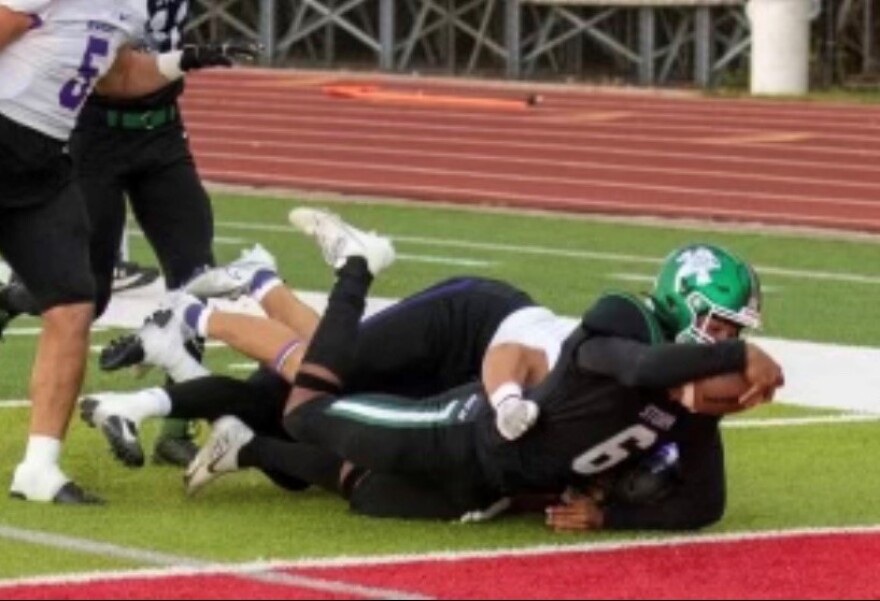This story is part of Ideastream Public Media's latest Sound of Us series, featuring the voices of Ideastream's Summer 2022 interns.
My mom has been there for me since day one. She sometimes records herself on her phone, cheering me on from nine hours away as she watches me play football for Lake Erie College.
Without my mom teaching me how to tie my own shoes, I would have never taken the steps that I’ve taken to become the man that I am today.
But being on numerous football teams and in countless hyper masculine environments has put my character to the test. I experience a lot of stereotypical behavior in my peers and mentors, whether it's acting aggressively or bottling up emotions.
Am I still living up to my mother’s expectations? And how do I avoid this concept of “toxic masculinity” that I hear so much about?
Fathers and grandfathers
My father is a very loving and caring father. But the decisions he’s made have kept him out of my life.
Seeing my mother struggle on her own raising me and my siblings made me not want to repeat his mistakes. This made me curious about how men affect women’s lives.
I went to a bar in Willoughby, near where I live, to talk to women about their relationships with men.
One woman, Alexis, told me her most positive male role model was her grandfather.

"He was always such a light in my life," she told me.
She paused, becoming a bit tearful, before continuing.
"Like, when you hug somebody and it's just like all your problems feel like they melt away," she said. "He literally hugged me for, like, three minutes."
By contrast, she said, her dad was not particularly vocal, and tended to hide his emotions.
Another woman, Tren, who’s 27 and from Pittsburgh, came from a similar situation growing up. She gained a real understanding of the difference between negative and positive masculinity in her relationships with her grandfather and her dad.
"All I ever knew in my life was my father reacting because he was drunk, angry," Tren said. "And in comparison to my grandfather, I was like, there's a different way to react to things and I always looked to my grandfather before I looked to my father."
Getting beyond anger
Sitting down and talking to them made me realize how important it is for men to be able to show emotions other than anger. A lot of men don’t speak up or seek help when they feel built-up aggression. According to one study, only a third of the people who get therapy are men.
But I have at least one male figure in my life who has a real understanding about showing positive emotions toward other men: my coach, Joe Kreinsen.
"I worry about players’ mental health," Coach Kreinsen told me.
He said the biggest difference between the way he coaches and the "old-school" way of coaching is that he’s not just tough toward his players.

"The biggest difference is like, 'Hey, like, how are you?' And not just the shallow 'How are you?' It's like, 'Hey, come into my office, let's talk and let's see how you really are. How's your family?'"
What I’ve learned from working on this story is that the way most people experience toxic masculinity is through men who have authority over them.
That’s true for me, too. Some of the biggest issues I’ve had with toxic masculinity are with my coaches.
I never know whether they care about me as a person or what I do for them as a player.
Coach Kreinsen gives me hope that it is possible to have a healthy relationship with a man who has authority over me.
So, how do I avoid toxic masculinity? Embrace positive masculinity, by doing something that is difficult for a lot of men: actually caring for others and showing them I care through my words and actions.








